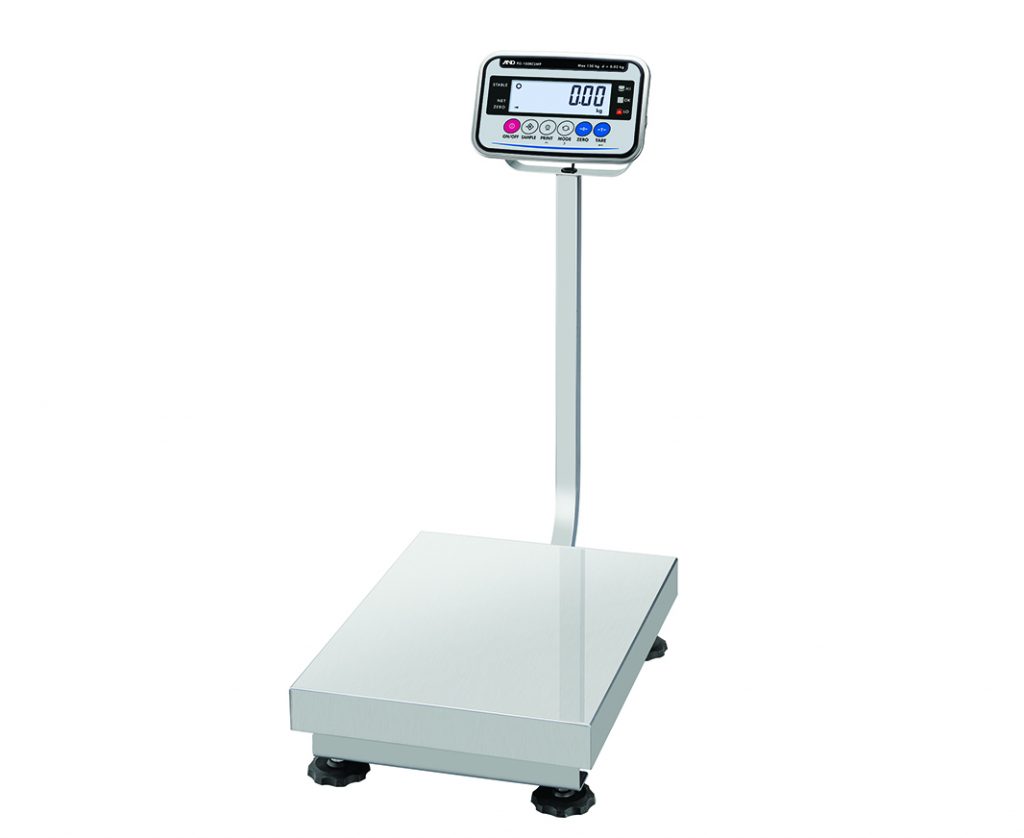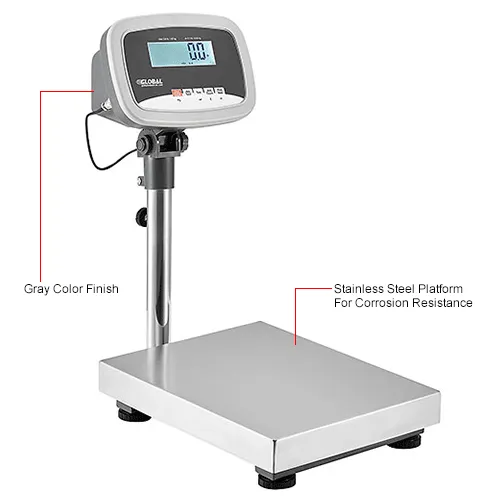
Leading Attributes to Try To Find in High-Quality Industrial Scales
In the world of industrial operations, choosing the right scale is important for making sure efficiency and precision. Secret attributes such as precision and precision, along with resilience and construct high quality, play a significant function in identifying the viability of a scale for details applications.
Accuracy and Accuracy
Making certain the accuracy and accuracy of industrial scales is paramount for effective procedures across various sectors. Precise dimensions are critical in industries such as manufacturing, logistics, and food processing, where also minor discrepancies can bring about significant monetary losses, jeopardized item top quality, or regulatory non-compliance. Premium commercial ranges are created to provide reputable performance, using innovative innovation to guarantee specific weight readings.
The calibration process is necessary in keeping the accuracy of these scales. Routine calibration versus licensed referral weights ensures that any type of drift in dimension is dealt with, consequently promoting conformity with industry standards. Additionally, the use of high-resolution lots cells boosts the range's capacity to detect minute weight changes, even more enhancing its accuracy.

Sturdiness and Construct Quality
Sturdiness and build top quality are critical aspects that establish the longevity and dependability of commercial scales in requiring environments. Industrial ranges are often subjected to rough problems, including exposure to dust, wetness, and hefty tons. The materials utilized in their building and construction play a crucial function in ensuring they can endure these challenges.
High-grade commercial ranges usually feature robust real estates made from products such as stainless steel or aluminum, which not only provide architectural honesty however likewise resist corrosion and wear. Additionally, focus to information in the style, such as strengthened corners and shock-absorbent feet, can enhance resilience and safeguard sensitive parts from damages.
Additionally, high-grade parts, consisting of tons cells and electronic parts, add to the total develop high quality. These parts need to be designed to tolerate temperature level fluctuations and resonances generally discovered in commercial settings. Ensuring appropriate ingress security (IP rating) is additionally necessary, as it indicates the range's ability to withstand dust and fluid exposure.
Inevitably, selecting commercial scales with remarkable sturdiness and construct top quality will lead to a more trusted, lasting remedy that satisfies the rigorous needs of various commercial applications.
Tons Capacity and Array
When selecting commercial ranges, comprehending their load ability and array is necessary for meeting details functional demands. Load capability refers to the optimum weight that a range can precisely determine, while the variety indicates the range of weights the scale can take care of efficiently. It is important to choose a scale that not only fulfills existing needs but also accommodates prospective future demands.
Different sectors my company have one-of-a-kind weight measurement needs. A manufacturing facility may require scales qualified of considering hefty equipment parts, while a research laboratory could just require scales for lighter materials. Choosing a scale with a suitable tons capability makes sure accuracy and accuracy, avoiding overwhelming that could result in equipment damages or imprecise analyses.
In addition, it is very important to take into consideration the step-by-step sensitivity of the scale within its range. A range that can gauge both hefty and light weights precisely can improve operational efficiency, allowing for functional description applications. Purchasing scales with appropriate load ability and variety substantially contributes to productivity, compliance with sector requirements, and overall functional dependability. For that reason, thorough evaluation of these specifications is essential before procurement.
Ease of Use and Upkeep

In enhancement to user-friendliness, ease of upkeep is another crucial facet to think about. Ranges that are made with available components assist in routine upkeep tasks such as calibration, battery, and cleaning replacement. A modular layout can even more simplify these processes, permitting quick repair work and minimal downtime.
Additionally, the materials made use of in the building of industrial scales play a substantial function in upkeep. Scales made from sturdy, corrosion-resistant materials are less complicated to tidy and less susceptible to damages, which prolongs their lifespan and minimizes overall operational expenses.
Routine upkeep schedules, guided by the supplier's recommendations, are crucial for ensuring ideal performance. By focusing on ease of use and upkeep, organizations can guarantee that their industrial scales stay reliable, reliable, and effective tools in their operations. This results in enhanced efficiency and a much more reliable operations.
Connection and Assimilation Alternatives
Incorporating commercial ranges right into existing functional structures is substantially boosted by durable connection choices. High-grade commercial ranges must use several connection techniques, including USB, Ethernet, and wireless options such as Wi-Fi or Bluetooth. These functions assist in smooth information transfer to main databases, ERP systems, or cloud systems, making it possible for real-time surveillance and reporting.
Furthermore, advanced integration options enable compatibility with existing tools, such as printers or barcode scanners, enhancing and streamlining processes operations effectiveness. Scales that support industry-standard methods, such as Modbus or RS-232, can quickly communicate with numerous gadgets and systems, ensuring a natural functional environment.
An additional Your Domain Name vital facet is the capability to integrate with software application solutions that assess and imagine information - Industrial Scales. Scales outfitted with APIs or software application development sets (SDKs) provide services the flexibility to customize performances tailored to their certain requirements
Last but not least, thinking about future scalability is crucial; choosing scales that can adjust to developing technical improvements guarantees long-lasting value and reduces the need for expensive substitutes. In recap, reviewing connectivity and assimilation alternatives is important when choosing high-quality industrial ranges that will certainly enhance operational effectiveness and information monitoring.
Conclusion
In final thought, choosing premium industrial scales necessitates careful consideration of numerous important functions. Industrial Scales. Prioritizing these attributes ultimately leads to boosted performance and long-lasting value in industrial applications, enhancing the value of notified decision-making in scale selection.
In the realm of commercial procedures, choosing the right scale is important for making certain effectiveness and accuracy.Making certain the precision and accuracy of industrial scales is extremely important for reliable procedures throughout numerous sectors. Lots capacity refers to the maximum weight that a range can properly gauge, while the array suggests the spectrum of weights the range can deal with efficiently. A manufacturing center might need scales qualified of evaluating heavy equipment components, while a research laboratory could just need ranges for lighter products. By focusing on ease of use and upkeep, organizations can make sure that their industrial scales stay reliable, trusted, and effective tools in their operations.